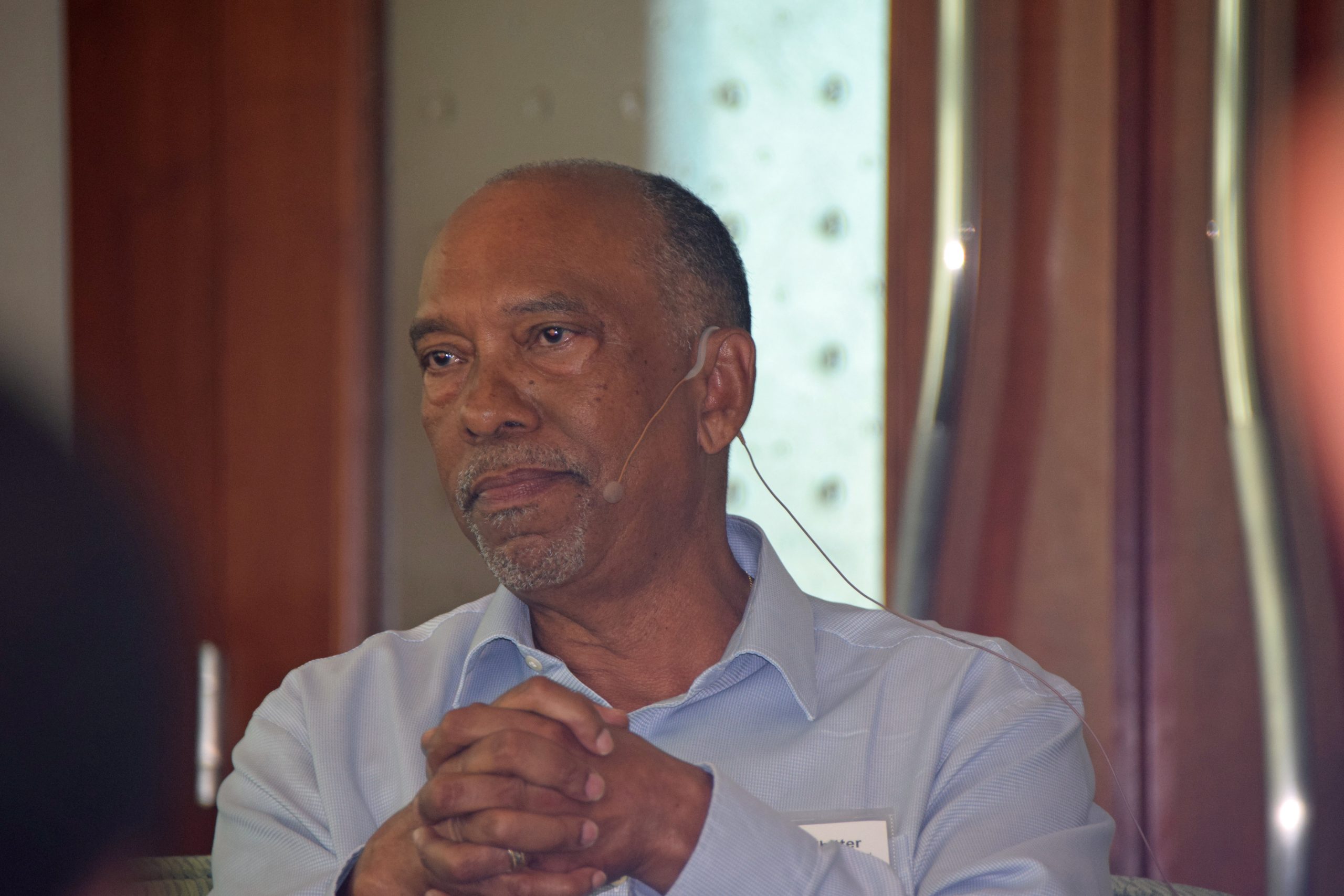Employers and Bermudian hopefuls must both do their bit to make it happen
By Sam Strangeways
As a student at the Berkeley Institute in the 1970s, Cyril Whitter was taught that he could achieve anything he put his mind to.
“It has a significant impact on your psyche,” said the president and CEO of Independent Management Ltd. “That belief in itself is a significant leg up.” What he has since achieved might seem remarkable to some for a boy who grew up on Parsons Road and Friswells Hill and was, in his words, “completely and totally clueless” about the insurance industry when he got his first job.
But Mr Whitter said when he looks back – piecing together the elements that enabled him to excel – he isn’t surprised he did well and doesn’t see his success as out of the ordinary.
There are so many people like me right now, with my background and my race,” he said. “I’m not unusual. I’m not an aberration… I’m thankful that I’m not an aberration and that there are a whole bunch of them coming through.
That said, Mr Whitter can see plenty of room for improvement when it comes to inclusion and diversity in international business in Bermuda. Just in the last few years, he and others at the Association of Bermuda International Companies have worked to help a group of black males who were “hitting glass ceilings for a variety of reasons”. The difference between now and 1978, when he joined Pinehurst Management Company as an accountant fresh out of Bermuda College, is the number of high-level executives invested in the subject.
“A lot of the people pushing the inclusion and diversity movement are C-suite people,” he explained. “Diversity from a gender perspective, diversity from a race perspective – in my space, it’s an issue.” He said in 1978 there were “very few” black people in positions of power in the corporate world. Yet he rose quickly through the ranks and eventually became one of the leading lights in Bermuda’s captive insurance industry. He became a senior vice-president at Pinehurst – by then, Jardine Pinehurst – in 1991 and joined IML in 1993, where he became president and CEO in 2009.
Mr Whitter puts his rise down to the self-belief fostered in him at Berkeley and at home, which resulted in a fierce work ethic. His father, a construction worker, would tell him: “If you are going to do a job, do it well or don’t do it at all.” He also benefited from having Bob Whiting, Pinehurst’s managing director, as his first boss. “He was the one that made sure I got promoted multiple times,” said Mr Whitter. “By 27, I was vice-president.
“Bob Whiting really took me under his wing and taught me everything about insurance.”
Mr Whiting, a Canadian, also taught him much about life. “When I entered the workforce, I had very clear prejudices and opinions as it related to white people,” said Mr Whitter. “Every time I came up with some reason to be prejudiced, he slapped it out of me. “He taught me those lessons very early on. They were important lessons because the vast majority of my clients for the last couple of decades have been white, not black.”
Mr Whitter acknowledged that not every boss “is going to be a Bob Whiting” and champion a promising young employee, regardless of their race. He said some high-ranking individuals would look to hire a “particular person” they had earmarked for a job or only seriously consider candidates from their own country – blocking the progress of others.
But he suggested IB was moving in the right direction and there were now many in positions of power willing to speak up for and insist on fairer hiring practices.
“It’s a very complicated subject and a lot of it isn’t built on prejudice against women or prejudice against black people,” Mr Whitter said. “Some of it is about cultural affinity. People are comfortable around people like themselves.” He believes the answer is not for companies to have race or gender quotas but to ensure they build equality of opportunity into their processes. Just as important, locally, is for young Bermudians to know as much as possible about the first pillar of the island’s economy – and the role they could play within it. Pre-pandemic, ABIC was sending young black professionals into public schools across the island to do just that.
Mr Whitter said once an employee had their foot in the door, they needed to show their ability and mettle, meeting challenges head on, including the difficult people they would undoubtedly encounter.
“We need to create organisations that promote people based on merit, irrespective of their race, irrespective of their gender,” he said. “People need to prove their worth. People shouldn’t expect a promotion or an appointment simply because a company is under pressure to have their upper echelon be more diversified. “People should be really willing to put in effort to master what they are doing so their promotion is obvious. People need to be willing to go into organisations and to seek excellence.”

